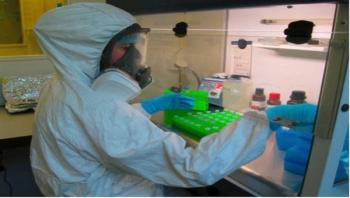
News
Advertisement


When a University of Oklahoma researcher and an international team of experts analyzed the dental calculus or plaque from teeth preserved for 1,000 years, the results revealed human health and dietary information never seen before. The team discovered disease-causing bacteria in a German Medieval population, which is the same or very similar to inflammatory disease-causing bacteria in humans todayunlikely scientific results given modern hygiene and dental health practices.
Advertisement




Advertisement























Advertisement
Advertisement
Trending on Infection Control Today
1
Bug of the Month: The Quiet Guest in the Dust
2
Continuous Photohydrolysis Disinfection Cuts MDROs, COVID-19, and Hospital Transfers in Long-Term Care, Study Finds
3
Manual Cleaning vs Automation: Achieving Consistent Cleanliness for Ultrasound Device Reprocessing
4
What Is Effective Preparedness for Emerging Respiratory Viruses? Shazia Irum, MSC, MBA, RN, CIC, CPHQ, FAPIC, answers
5